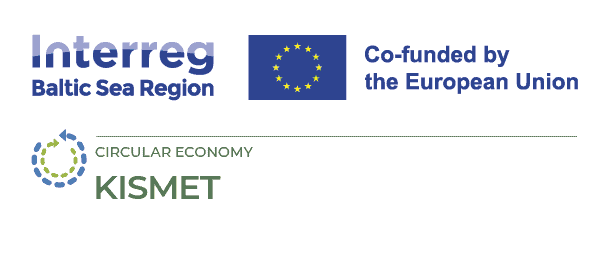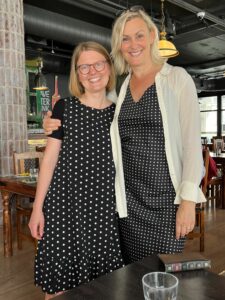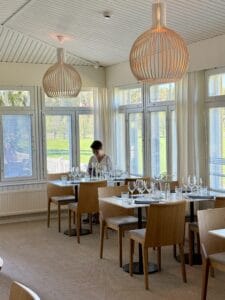
How do you do so far?
25 June 2024
The Interreg KISMET project has been a transformative initiative aimed at promoting sustainable food systems in the Baltic Sea region. We interviewed Piia and Anne Mette, key contributors to the project, to gain deeper insights into their achievements and the impact of their work in their respective regions, Savonlinna, Finland and Vejle, Denmark.
The Regional Context and Objectives
Piia explains, “The project is concerned with developing a sustainable food system in the Savonlinna region. KISMET project concept No. 15 „Seasonal Pyramids“ introduces harvest thinking to consumers. This concept is designed to raise awareness about the importance of harvesting and using local seasonal products, with implementation support from the City of Savonlinna’s food services.
Anne Mette, representing Vejle Kommune’s efforts, highlights that the project aligns with broader climate action goals: “The KISMET project is linked to the broader goals of strengthening plant-rich consumption and production.” Vejle’s Climate Plan 2020-2050 aims for a 50% reduction in food waste and greenhouse gas emissions by 2030, in line with Denmark’s national dietary guidelines promoting a plant-rich diet.
Challenges Encountered
Both regions face significant challenges. Piia notes, “Consumers may not be aware of the harvest season and do not know exactly where to buy the products.” The lack of clear presentation of seasonal products in everyday settings hinders consumer engagement. Anne Mette adds, “Professional kitchens and chefs face several barriers in adopting plant-rich and sustainable food practices,” citing the need for additional training and comprehensive support.
Strategic Solutions
To overcome these barriers, Piia emphasizes the importance of education: “Consumers should be informed about the harvest season and its products. Communication and information should be organized.” This involves visiting cafeterias to educate diverse groups, from preschool children to elderly residents, about local food and harvest season products.
Anne Mette focuses on workshops: “We develop workshops that offer insights into the benefits and preparation of seasonal plant-rich meals, reducing food waste.” These workshops also include knowledge sharing from local food businesses and experts, creating a comprehensive educational environment for food professionals.
Successful Implementation
Implementation has been a key success factor. Piia proudly shares, “We got the City of Savonlinna Food Services to deliver the Seasonal pyramid posters to their cafeterias.” Additionally, educational games and activities for different age groups have been introduced to schools and kindergartens, fostering an early appreciation for seasonal products.
Anne Mette highlights the impact of collaborative cooking sessions: “By spending time cooking together, we have created a good frame for sharing knowledge and barriers with like-minded people.” This approach has successfully enhanced the skills of food professionals, enabling them to create appealing, plant-rich menus.

Anne Mette (left) and Eva
User Engagement and Outcomes
The solutions have been well-received. Piia states, “Through concept 15, we aim to influence consumers in cooperation with Savonlinna’s food services,” detailing the distribution of educational materials across various institutions. This initiative has significantly raised awareness about local food and seasonal products.
Anne Mette observes notable changes among participants: “They have learnt a lot and have started thinking and cooking differently at their job.” The workshops have empowered chefs and food professionals to incorporate more locally grown beans, peas, and lentils, reduce red meat, and prefer seasonal vegetables.

Piia from Finland
The Role of Interreg and Future Prospects
Interreg’s support has been pivotal. Piia acknowledges, “Through Interreg, we can promote harvest thinking through posters, games, and communication.” This has led to increased consumer awareness and a renewed interest in local, seasonal foods.
Anne Mette elaborates, “Interreg has played a crucial role in facilitating these changes by providing the framework and support necessary for the KISMET project.” The funding has enabled high-quality training sessions and fostered collaboration among various stakeholders, ensuring the project’s long-term success.
In conclusion, the KISMET project, through the dedicated efforts of Piia and Anne Mette, has made significant strides in promoting sustainable food practices in Finland and Denmark. Their work exemplifies how strategic education, community engagement, and international collaboration can drive positive change in food systems, contributing to broader environmental and health goals.





